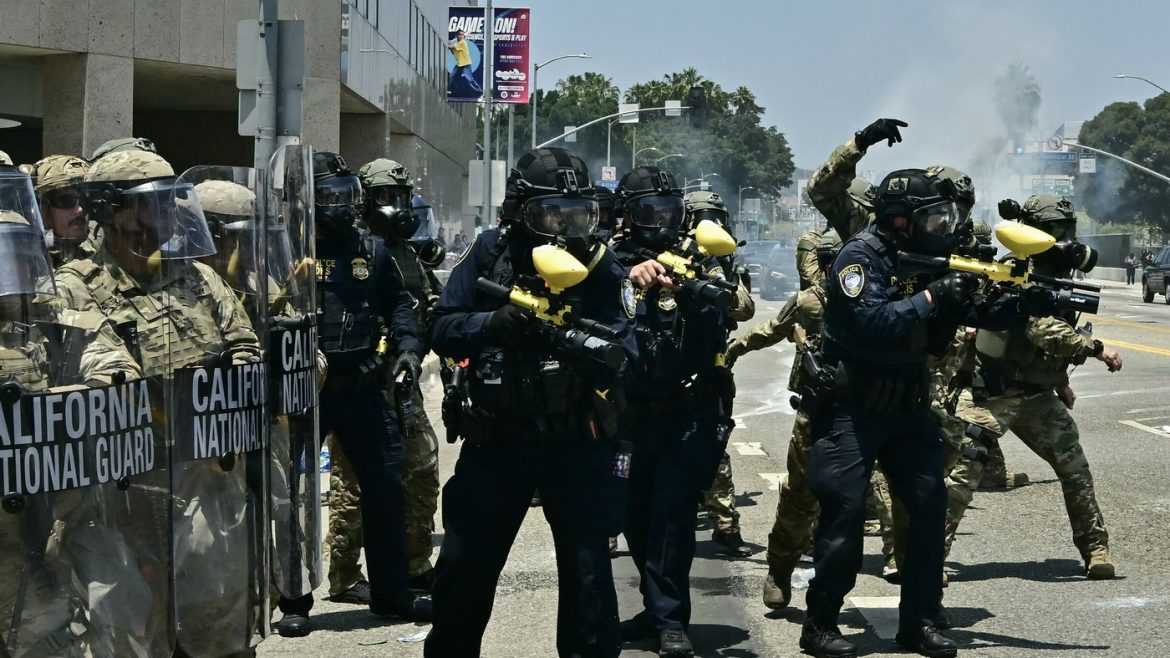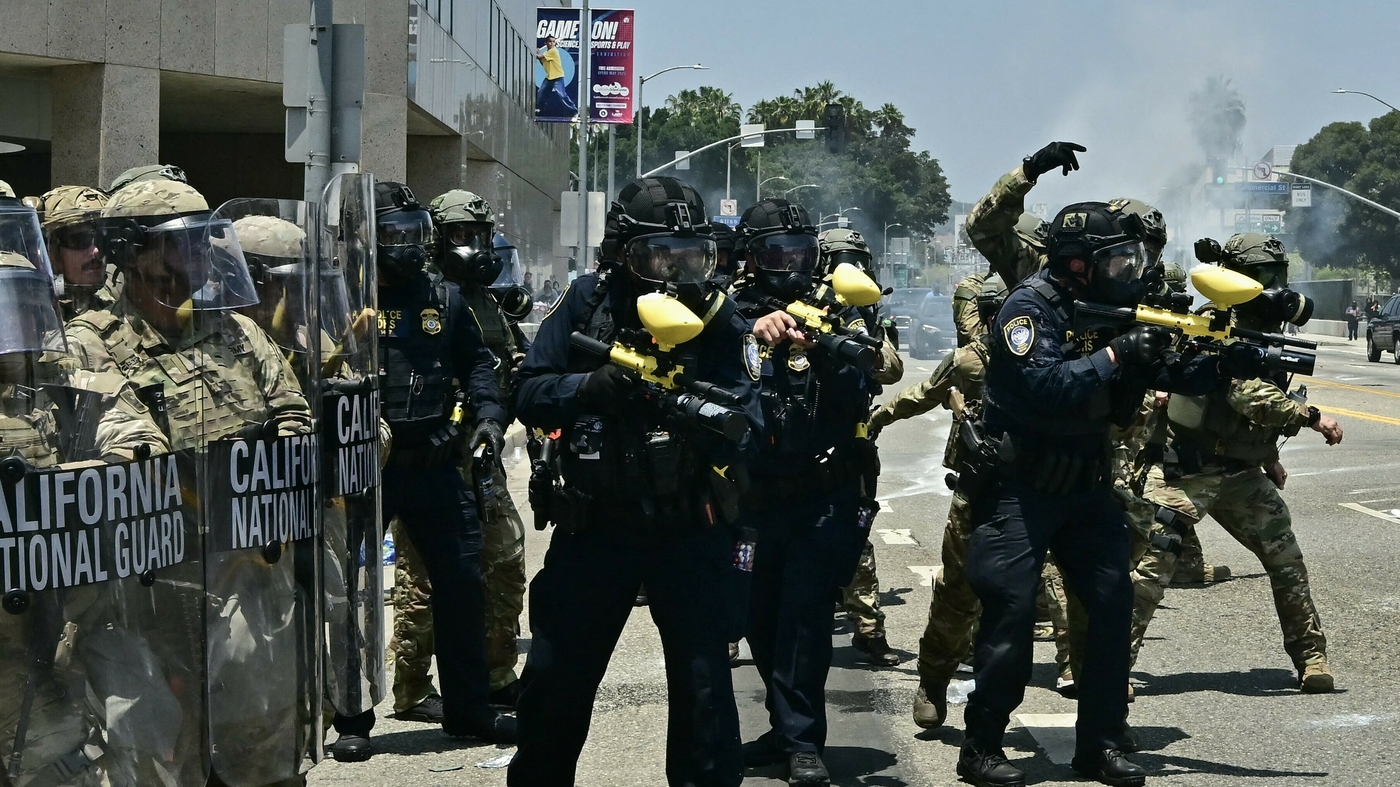The deployment of federalized National Guard troops to Los Angeles in response to immigration-related unrest has sparked significant political conflict, public concern, and media attention. Central to this situation are the actions of Mayor Karen Bass, the federal government under President Trump, and California Governor Gavin Newsom. Analyzing the multifaceted dynamics surrounding these events reveals critical themes about federalism, local governance, public safety, community response, and political discourse.
Context and Catalyst: Unrest over Immigration Raids
The immediate catalyst for the National Guard’s deployment was a series of federal immigration enforcement raids (ICE operations) in Los Angeles, which provoked widespread protests and clashes between protestors and law enforcement. These actions occurred in a city known for its sanctuary policies and political opposition to aggressive federal immigration tactics.
Los Angeles experienced days of demonstrations, some escalating into confrontations. Community members and leaders voiced fears and anger over the raids, while local law enforcement sought to maintain order amid the growing tensions. This set the stage for federal intervention, with the National Guard sent to reinforce security efforts.
Federal Intervention Without State Consent: A Rare and Controversial Move
President Trump ordered approximately 2,000 National Guard troops to Los Angeles for a period of sixty days, citing a rarely used federal law that allowed bypassing the state governor’s authority. This marked the first deployment of federalized National Guard troops to California without Governor Newsom’s consent in six decades, highlighting the unprecedented nature of the intervention.
The federal government framed the deployment as necessary to maintain public safety in the face of violent protests and unrest, aiming to support immigration enforcement and quell disturbances. However, this unilateral decision escalated political tensions and raised questions about the limits of federal power versus state sovereignty.
Mayor Karen Bass’ Response: Opposition and Concerns
Mayor Karen Bass has been a vocal critic of the federalized National Guard deployment. She termed the move as a “chaotic escalation” that heightened fears among residents rather than calming the city. Bass expressed confidence in the abilities of the Los Angeles Police Department (LAPD) and local agencies to manage safety and order, rejecting the premise that additional federal troops were needed.
Bass also emphasized the potential for the National Guard presence to aggravate tensions and deepen community distrust of law enforcement and federal authorities, especially given the city’s immigrant population and sanctuary status. She cautioned that militarizing the city streets risks inflaming the situation rather than resolving root issues.
Alongside Governor Newsom, Bass positioned herself as part of a political coalition opposing the federal action, criticizing it as an overreach intended more for political messaging than effective public safety. Both leaders highlighted how the deployment potentially undermines democratic norms and local governance.
Public and Media Reactions: Polarized Perspectives
The deployment and the broader immigration enforcement operations provoked varied public and media reactions. Supporters of the federal action characterized local leadership, including Bass and Newsom, as ineffective or unwilling to control lawlessness and restore order. Some conservative commentators accused the mayor of neglecting her responsibilities.
Conversely, many advocates, activists, and local constituents backed Bass’s stance, viewing the National Guard’s arrival as an intimidation tactic and an unnecessary militarization of the city. Protests against the raids and federal intervention persisted, demonstrating ongoing community resistance.
Media outlets provided extensive coverage that oscillated between reporting the factual progression of events and capturing the political theatricality—the partisan criticisms, accusations, and social media disputes surrounding leadership efficacy and law enforcement strategy.
Implications for Governance and Community Relations
The conflict over National Guard deployment illuminates broader tensions about the role of federal authority during civil unrest, particularly in sanctuary jurisdictions. The bypassing of Governor Newsom’s consent challenges traditional cooperative federalism and raises constitutional debates about state versus federal control over National Guard forces.
For Mayor Bass, the situation tests her leadership amid a highly charged environment, balancing community protection, civil rights, and public safety. Her opposition to federalized troops reflects a commitment to uphold the city’s policy preferences and shield vulnerable populations, yet it also exposes the city to criticism and confronts practical challenges in managing unrest.
The presence of National Guard troops under federal command may also complicate interactions between law enforcement and the community, potentially hindering trust-building efforts and inflaming fears among immigrant groups and protestors.
Looking Forward: Navigating Crisis Amid Political Polarization
As the National Guard deployment proceeds, it remains crucial for local leadership to manage tensions carefully, maintain clear communication with residents, and address the underlying causes of unrest related to immigration policy and enforcement practices.
Mayor Karen Bass’s approach, emphasizing local authority and caution about escalation, represents a distinct stance in a polarized political landscape. The evolving situation calls for nuanced strategies that respect civil liberties while ensuring public safety, as well as a reexamination of federal-state relations in managing internal security challenges.
Conclusion: A Defining Moment for Los Angeles Leadership
The federal deployment of National Guard troops to Los Angeles amid immigration protests is a landmark event with legal, political, and social reverberations. Mayor Karen Bass’s outspoken opposition highlights fundamental debates about governance, community trust, and the appropriate use of force within democratic societies.
This episode underscores the complexities urban leaders face when national policies intersect with local realities, and how responses to civil unrest shape the public’s faith in institutions. The resolution of these tensions will influence not only Los Angeles’s immediate future but also the broader discourse on immigration enforcement and intergovernmental cooperation in times of crisis.


